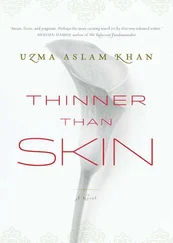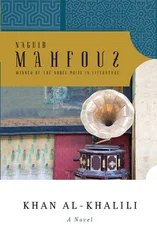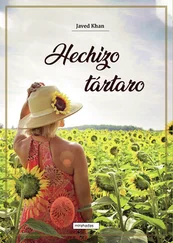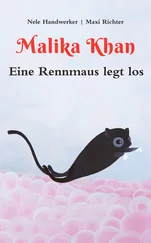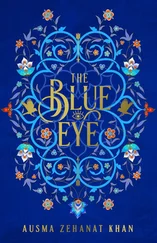The water channels tinkled melodically, reminding Dia, with each drop, how much depended on them. In the stifling, pre-monsoon heat of May she fanned her face with a corner of her dupatta and hoped the year would be a wet one.
Leaving the guards, she took her time strolling between the rows of mulberry trees, carefully planted eighteen feet apart. Ahead of her fluttered a pair of black swallowtail butterflies. They chased each other, landed on a twig, and mated, tail to tail, resembling a single creature with two heads and four wings. The male must have overpowered her with his scent, she mused. In moths, it was the female that produced the aphrodisiac. It could be so powerful that immediately upon her emergence from a cocoon, if a male hovered nearby, she’d lure him. She’d have sex at birth. Dia had tried many times to witness this, but in all her trips to the farm, never succeeded. This season, she was determined to.
She crossed over to the shed. From the outside, it resembled a greenhouse: low-lying and flat-roofed. Adjacent to it was a two-room shack. From here came Sumbul, Inam Gul’s tall, languid daughter and the farm’s most valued worker. A lilac kameez offset her smooth, nut-brown skin, and she looked like a jacaranda tree in bloom. Approaching Dia Sumbul swayed, carrying a baby on her hip and a clipboard in her right hand.
‘Salaam Baji,’ Sumbul greeted her.
‘Waalai-kum-asalaam.’
‘How is Aba?’
‘Oh fine,’ answered Dia. ‘Mischievous as ever. He sends his love. How’s your husband? Is everything okay at home?’
Sumbul smiled, tugging the braid that had slipped over her shoulder. It was so long and thick she’d twisted it in a U-turn. ‘His mother’s gone back to our village for a few weeks. Things are better. But,’ she looked away, ‘I think a fifth is on the way.’
Dia sucked in her breath; Sumbul was only her age. ‘And you still don’t want Ama to give you pills?’
‘What if he finds out?’
‘Keep them here, at the farm. He’ll never know.’
Sumbul sighed, adjusting the baby to her other side. ‘No, Baji.’
Dia shook her head but said nothing; the choice was Sumbul’s.
Together they entered the shed.
The interior was hot and humid, fanned with a continuous stream of fresh air. It was divided into four sections. The first, empty during this season, would soon hold the eggs laid by the current batch. In the second room was a long table with trays of wriggling larvae feeding on finely chopped mulberry leaves. Dia walked past the trays, greeting the women who tended the maggots. As in the days of the Chinese Empress, now too silkworms were bred by women. With the exception of the gardeners and the security guards, the farm was entirely run by them, which was why they were allowed to work at all.
When they first started, the sight of the larvae had made the workers squirm. Touching had been out of the question. But now the insects were handled as mechanically as braids and babies; sliding a handful down the shirt of any farm worker would never produce the effect it had on Nini. Despite herself, Dia smiled.
Sumbul, guessing the reason correctly, asked how the plan had worked.
‘Well, unfortunately Nini overreacted. She has marriage on the brain.’
‘Marriage?’ Sumbul adjusted the baby again. ‘Well it’s no surprise, is it? Nissrine is so beautiful!’
‘Is it her beauty that’s made her change? She doesn’t even know the boy she’s after.’
‘Most women don’t,’ replied Sumbul. ‘Inshallah, she can make it work.’
But why should she? Dia wanted to scream. Why should Nini accept the limits that others so maliciously placed upon her? Why was it up to her to make it work, with a man who was a complete unknown, no less? Not wanting yet another argument with a woman she liked, Dia again said nothing.
They walked down the length of the table. The larvae were white and blind; their only activity was eating. But having been bred for so many centuries, they’d all but forgotten how to eat. The women had to chop up their food in tiny slivers and change the supply nine times daily or the fussy creatures would starve. If in their wilder days, they required no hygiene, now the perforated paper beneath them had to be scrupulously cleaned, or this too would elicit a hunger strike.
Toward the end of the table were caterpillars that had molted a fourth and final time. It always happened this way, thought Dia. An insect’s life was so measurable, and yet so mysterious. Perhaps the paradox was the allure. As diligently as she studied them, there would always be details — like the changes inside a cocoon or the moths mating at birth — which escaped her.
She studied the sheets stacked on the clipboard. On top was the tally for this year. The news was not good. Fewer caterpillars had lived through the fourth molt than ever before. Watching them slither on a bed of leaves, she made believe they talked to one another. They whispered: Let us vow never to spin our fine threads for these wretched humans again!
Sumbul’s baby woke. He writhed and rubbed his eyes with tiny fists, threatening to holler. Sumbul swiftly opened her kameez and offered him a breast.
Dia said, ‘Don’t you half expect the silkworms to form a guerilla alliance and revolt? People have always depended on animals for food and clothing, and then, four thousand years ago, along came a Chinese empress who made insects our property too. Maybe mutiny is the real reason output is down.’
Sumbul laughed. ‘You have such silly ideas, Dia Baji. I can only imagine what you and my father must say to each other all day!’ Her baby was falling asleep in mid-suckle. He loosened his grip on her swollen nipple and a string of milk ran down his chin. She mopped it clean with her shirt, which she then buttoned up.
Dia felt she was looking at Nini, just a few years from now. Too few years.
Sumbul continued, ‘My grandmother always believed my father was the misfit in the family. He was never a very good fisherman. I think he’s much happier at your house than he ever was at sea.’
‘But he still misses the village,’ answered Dia. ‘He talks about it often. He especially worries about the eldest, Salaamat.’
‘Strange that you should mention him. He visited me just this morning.’
‘Oh? How is he? And when will he visit his father?’
‘I can only tell you he’s happy. Look what he gave me!’ Sumbul smiled as she dug out two hundred rupees from somewhere in her bosom. ‘His employers are good to him and he’s good to me. Their son just returned from Amreeka. You’ll never believe it: he was on the same flight as that boy whose father’s Quran Khwani you went to. The boy Nissrine wants! He sat beside him the whole time. Salaamat picked them up at the airport and even dropped the boy home.’
‘Oh!’ Dia exclaimed. ‘Maybe your brother can find out more about this American boy through his employer’s son, eh? If it’s bad news, I’ll pass it on to Nini. If it’s good, we won’t tell her.’
Sumbul chuckled. They left the larvae and hovered outside the third section of the shed. Entrance here was strictly forbidden. Inside lay the silkworms that had begun to turn yellow, indicating they were ready to start weaving their cocoons and hole up as pupae for two weeks. It was a delicate stage. A silkworm wanted absolute privacy as it spun. The slightest interference could result in a faulty cocoon or even in death. Over the years, Dia alone had witnessed the process, for she’d perfected the art of absolute stillness. As a result, her mother allowed her inside. But Sumbul, especially Sumbul with a baby, would have to wait outside.
Dia took a pair of binoculars from a drawer, positioned them over her eyes, and crept inside.
Читать дальше
Конец ознакомительного отрывка
Купить книгу

